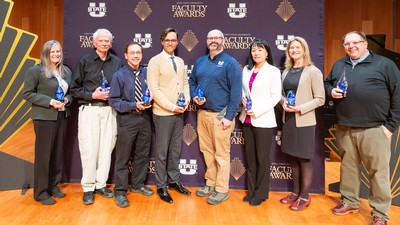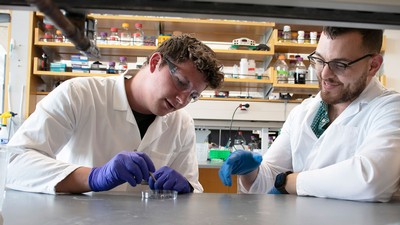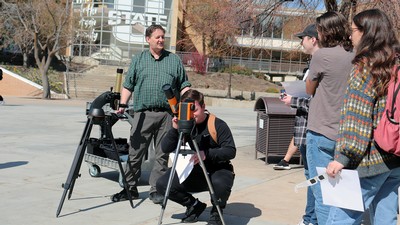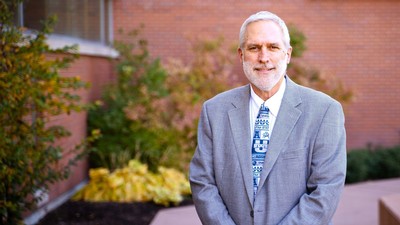Western Psychological Association Honors USU Associate Professor
Throughout his career, Michael Twohig’s work has been devoted to doing more than changing troublesome behaviors that accompany obsessive compulsive disorders and the OCD spectrum. He has also worked to help people deal with the disturbing thoughts and urges that go with the behavior.
His work, along with the work of his colleagues, has pioneered new treatments in the field. In recognition of his efforts to bring research to the clinic, he was recently awarded the 2014 Enrico E. Jones Award for Research in Psychotherapy and Clinical Psychology.
Twohig is an associate professor in the Psychology Department within the Emma Eccles Jones College of Education and Human Services at Utah State University.
“As psychologists, we are quite good at knowing how to help people change their actions,” he said. “But we’re continuing to figure out how to help people deal with the thoughts they have, the urges, the impulses.”
His clinical research has focused on acceptance and commitment therapy, which falls under the umbrella of acceptance and mindfulness therapy.
The underlying philosophy has been around for a long time, he said, though it’s been applied more in a spiritual context in some Eastern religions until recently. The therapies focus on helping people function with their internal experiences so they can live more fulfilling lives.
For example, the act of changing a child’s diaper may trigger a number of disturbing thoughts and images in a mother who is afraid of germs or has obsessive compulsive disorder. Rather than trying to chase those thoughts away, acceptance and commitment therapy emphasizes acknowledging them and then going on with the business of being a good mom regardless of what one’s mind is saying.
The most exciting finding is that acceptance and commitment therapy works on a broad range of behaviors, Twohig said: hoarding, fear of germs, scrupulosity, skin picking, hair pulling and compulsive pornography use, to name a few.
His studies have tracked the effectiveness of the therapy over a treatment periods of eight to 16 sessions. In general, 60 percent of the study participants with OCD or related disorders no longer fit the criteria for that disorder after therapy.
University researchers play an enormous role in helping discover the best treatments, he said. A published article represents 100s of hours of scholarly work — something few clinical therapists could do while maintaining a practice.
In addition to writing for scholarly journals, he has edited a special edition of the journal Cognitive and Behavioral Practice. It was focused on acceptance and commitment therapy. He also just completed another issue of the Journal of the Experimental Analysis of Behavior with USU colleague Greg Madden. This issue was on the bridge between applied and more basic research.
“Here, the university supports me so that those who practice in the field can know how to do it better,” he said. “Universities are supporting the progression of science and helping people. It’s a huge, important thing.”
Twohig will receive his award during the Western Psychological Association’s annual conference in Portland this April.
Related links:
USU Emma Eccles Jones College of Education and Human Services
Contact: Michael Twohig, (435) 797-1402, michael.twohig@usu.edu
Writer: JoLynne Lyon, (435) 797-1463, jolynne.lyon@usu.edu
USU associate professor Michael Twohig has been honored by the Western Psychological Association. He is the 2014 recipient of the Enrico E. Jones Award for Research in Psychotherapy and Clinical Psychology.
TOPICS
Health 308stories Faculty 303stories Mental Health 83stories Psychology 44storiesComments and questions regarding this article may be directed to the contact person listed on this page.






